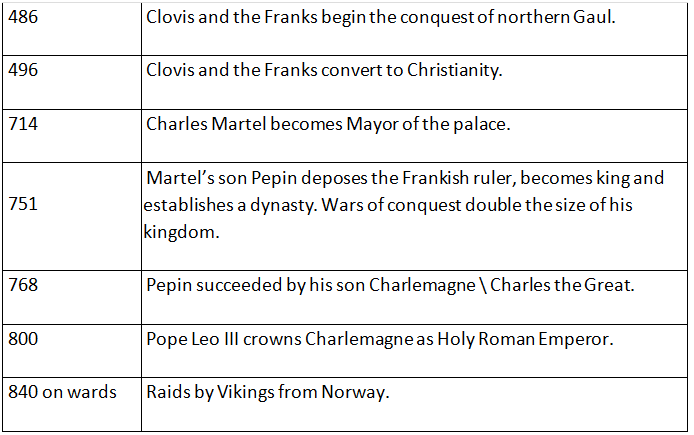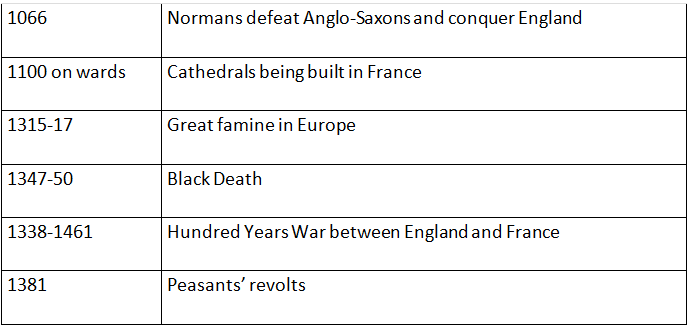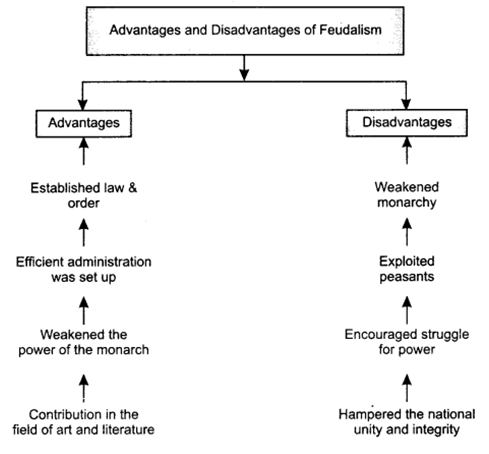UPSC Exam > UPSC Notes > NCERT Video Summary: Class 6 to Class 12 (English) > NCERT Summary: The Early Societies (Theme 6: The Three Orders)
NCERT Summary: The Early Societies (Theme 6: The Three Orders) | NCERT Video Summary: Class 6 to Class 12 (English) - UPSC PDF Download
Three Orders
- Western European society was divided into three orders between the ninth and the sixteenth centuries.
- The three orders of the western society include:
- The Clergy
- The Nobility and
- The Peasantry
- Clergy enjoyed special status. They were exempted from paying taxes.
- The nobility also enjoyed a respectable position in the society. People belonging to the nobility were appointed on higher posts in administration, army and the church. They were also exempted from paying certain taxes.
- The peasantry had to pay heavy taxes and had to work very hard to meet their both ends.
- The most important characteristics of the middle age Western European society was the emergence of feudalism.
- Two sections of the third order were:
- Free Peasants
- Serfs
- Free peasants had to deposit a fixed land revenue to the lords.
- Most of the Western European society belonged to the serfs. A lot of restrictions were imposed on them while the peasants were free from such restrictions.
- Serfs were denied to offer prayers in the church. They were ill-treated and forced to work nearly 12 to 16 hours a day.
- Feudalism is a German word. It stands for land or an estate. It was regarded as the main the pillar of the Medieval European society.
- Under feudalism, lords were granted their land in exchange for military services and personal loyalty.
- Feudalism originated in France. Later on it spread over to many other countries of Europe like England, Germany, Italy, Spain, Austria, etc.
- The church played a major role in influencing the Medieval European society.
- Pope was the supreme authority in the church’s institution.
- Some of the famous towns that came into prominence were Venice, Florence, Paris, London, Frankfurt, Milan, Amsterdam, etc.
- The word ‘monastery’ is derived from the Greek word ‘monos’ that means someone who lives alone.
- The drawbacks of the barter system were solved by the use of money.
- St. Benedict Monastery was established in 529 CE in Italy. St. Benedict laid the foundation of this monastery.
- Decline of feudalism in the 16 century paved the way for the rise of nation-state in Europe. French, German and Russian Revolutions occurred in 1789, 1848 and 1917 CE respectively. These revolutions inspired the people of the world also and gave a new way to the world.
Important terms
- Tithe: A kind of tax collected by the church from the peasants in France. It was l/10th of the total produce.
- Manor: Dwelling area of the landlord.
- Fief: The land given by the lord to the knight.
- Pope: The supreme authority of the church.
- Friars: A group of monks who moved from place to place, preaching to the people and living on charity.
Timeline: Early History of France

Eleventh to Fourteenth Centuries

The New Monarchies

Flow-Learning

The document NCERT Summary: The Early Societies (Theme 6: The Three Orders) | NCERT Video Summary: Class 6 to Class 12 (English) - UPSC is a part of the UPSC Course NCERT Video Summary: Class 6 to Class 12 (English).
All you need of UPSC at this link: UPSC
|
494 videos|387 docs
|
Related Searches
















